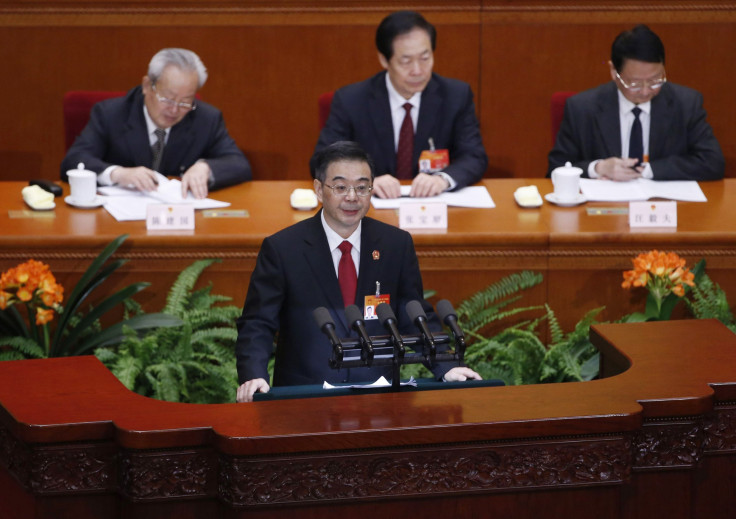China's Top Judge Stresses Campaign Against Wrongful Convictions

Zhou Qiang, China’s top judge, told legislators that Chinese courts had overturned a total of 1,317 criminal convictions last year, and reasserted his commitment to stopping wrongful convictions, the China Daily reported.
"We deeply reproach ourselves for letting wrongful convictions happen. Courts of all levels should learn a serious lesson from these cases," Zhou, president of the Supreme People’s Court, said. He discussed the example of an 18-year old Mongolian man named Huugjilt, who was convicted in a 1996 rape-murder case and executed. He was acquitted of his crimes 18 years later, in 2014, after a serial rapist and murderer confessed to the crime in 2005, and was sentenced to death in February.
Zhou said the higher court of Inner Mongolia had launched an investigation into those responsible of convicting Huugjilt and that they would be held accountable. Huugjilt’s parents received an apology and a financial settlement.
Procurator-General Cao Jianming also stressed to his fellow prosecutors that they must always hold themselves to preventing wrongful convictions. The Supreme People’s Procuratorate (SPP), Cao said, is trying to perfect a system that will allow prosecutors to more closely supervise the police’s detention and handling of suspects, and give suspects and inmates more leeway to appeal, and called on prosecutors to stop any case they came across that was “tainted” by unclear facts, lack of evidence or poor procedure.
Procuratorates will also hold detention centers and jails to stricter scrutiny while cracking down on the use of coercion by police officers, Cao reportedly said. Chinese courts rely heavily on confessions for evidence, many of which are believed to have been extracted from suspects through illegal or unethical methods. They also have a very high conviction rate, with 99.9 percent of cases leading to a conviction in 2013, BBC reported.
In January, China also announced that it would bar targets for arrests and convictions. However, it still has the world’s highest number of executions per capita, with the nonprofit Dui Hua Foundation estimating at least 4,000 executions in 2011.
© Copyright IBTimes 2024. All rights reserved.











